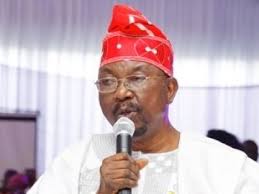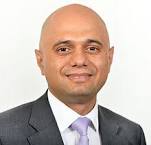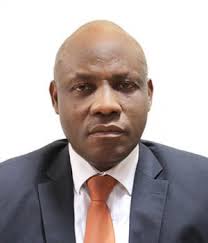The Chairman, Board of Commissioners of the Nigerian Communications Commission (NCC), Senator Olabiyi Durojaiye, has warned that Nigeria may not be able to achieve the 30 percent broadband penetration, unless measures are taken to curb indiscriminate tax charges on telecoms operations by state governments and the wanton destruction of telecoms facilities.
The NCC Chairman, who gave the warning during his keynote address at the 10th Annual NigeriaCom Conference in Lagos, listed other factors that could hinder the achievement of 30 per cent broadband penetration, as multiple taxation/regulation, Right of Way (RoW), arbitrary and indiscriminate charges, poor power supply, among others.
Despite the challenges, he restated the commitment of the commission to sustain efforts aimed making the telecom sector more investment-friendly and attainment of 30 percent broadband penetration target realistic by the end of the year as provided in the National Broadband Plan (NBP).
Noting that though Nigeria has attained 22 per cent broadband penetration since last year, Durojaiye projected that the possibility of achieving the 30 percent broadband penetration and surpassing by the end of the year was there if all the identified challenges are addressed.
He clarified further: “The commission in its eight-point agenda, recognises the need to facilitate strategic collaboration and partnership with stakeholders in order to achieve the goal of access to all which naturally translates to economic power.
“In this regard the commission is constantly engaging with the National Executive Council (NEC), state governors and local government chairmen, community leaders and relevant agencies to make them understand the long-term benefits of reducing excess charges/levies, allowing unhindered access and deployment of infrastructure in their communities.
“As part of our intervention efforts to create an enabling environment, the Commission engaged the Ogun State Government and was able to secure the reduction of ground rent for BTS from N360 million to N120 million in favour of IHS, as well as the unsealing of 47 Base Transceiver Stations (BTS) shut down by some government agencies across the country,” the NCC boss added.
Durojaiye also disclosed that the commission was working hard also to ensure the passage of the ‘Telecommunications Critical Infrastructure Bill’ which would rank telecoms infrastructure as critical infrastructure.
According to him, as of now, Nigeria has about 10 terabytes undersea cable telecommunication capacity but that the major obstacle has been the inability to deploy fibre infrastructure across the country.
To address the challenge, he explained that commission had completed the licensing of Infrastructure Companies (InfraCos) using the Open Access Model which is non-discriminatory, and which enables infrastructure sharing to bridge the gap and deliver very robust, fast and reliable broadband services in the country.
Similarly, the NCC chairman said that the commission had also established a financial inclusion desk to interface with the Central Bank of Nigeria (CBN) and other stakeholders in the digital financial ecosystem to deal with issues of policy and regulation as they affect financial inclusion in the country.
The industry regulator also hinted that the commission had offered Short Codes to CBN mobile payment service licensees free of charge to improve e-banking services and mobile money, among other services.




